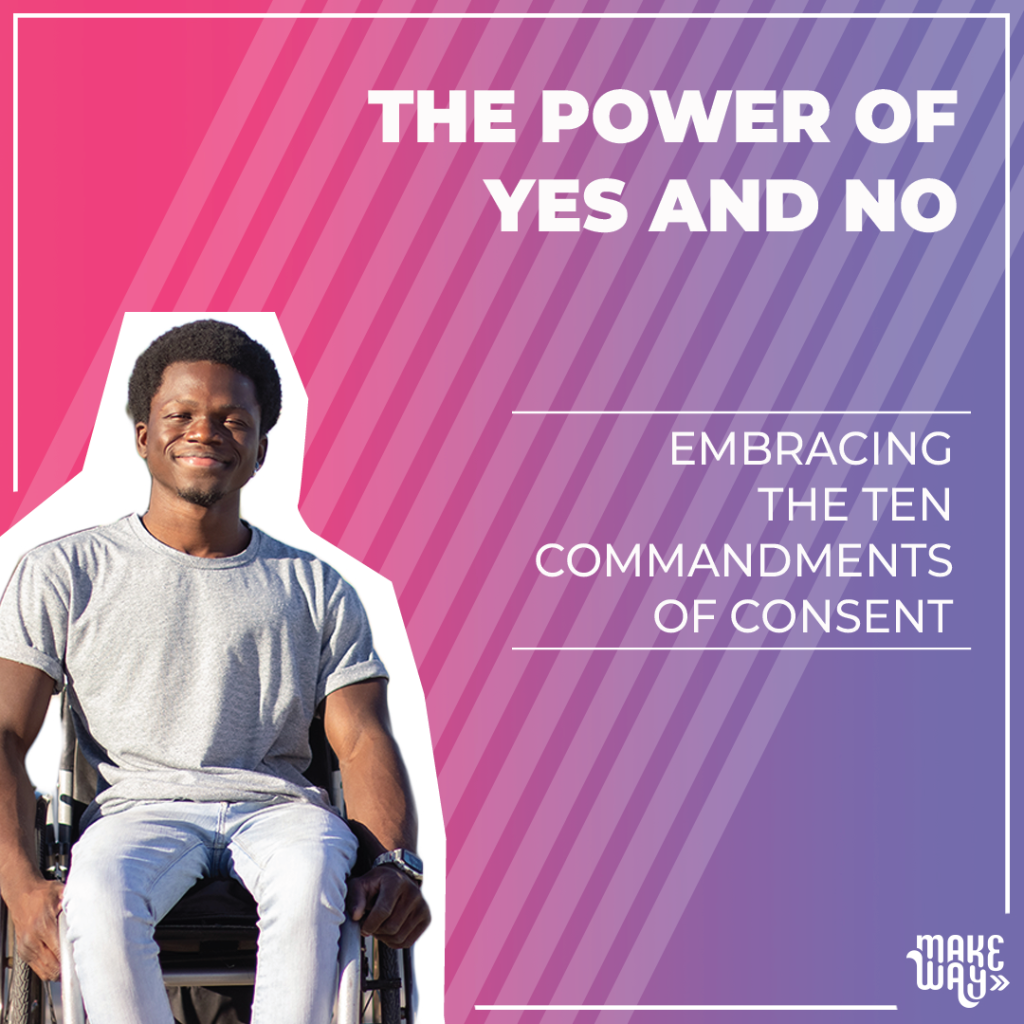The power of yes and no: Embracing the ten commandments of consent
 04 September 2023
04 September 2023

As we celebrate World Sexual Health Day this September 4th, 2023, the global spotlight turns to the cornerstone of healthy relationships: consent. In a world where interactions can often blur lines, the significance of fostering a culture built on mutual understanding and respect cannot be overstated, especially when we are discussing Sexual and Reproductive Health and Rights (SRHR). It is within this context that the Make Way team has meticulously crafted fundamental rules that lay the foundation for navigating the intricacies of interpersonal dynamics.
Read below to discover the Ten Commandments of Consent, crafted for a clear and youth-friendly understanding:
- Thou Shalt Get Excited Agreement: Consent is like a team agreeing to play a game together. Just as every player needs to willingly join the game and be excited about it, both people should feel comfortable and happy before moving forward. Consent should never be pushed through threats or by making someone feel uncomfortable. Just as a team works together, both people should be on the same page and ready to proceed.
- Thou Shalt Never Guess About Consent: Don’t ever guess if someone is okay with something. Just because they’re being friendly, chatting, sharing a drink, hanging out privately, going on a date with you, or even if you’re together in a relationship, it doesn’t mean they’re agreeing to anything more. Imagine you’re at a party, and you see someone dancing and laughing. That doesn’t mean they automatically want to dance with you.
- Thou Shalt Talk It Out: It’s important to talk openly and specifically about what you both want. Only when both people say yes is it okay to go ahead.
- Thou Shalt Keep Checking In: Think of consent like a journey you’re taking together. Just as you’d check the map or GPS along the way to make sure you’re on the right track, you should keep checking with each other. It’s like giving a high-five to make sure you’re both still good to go. And if someone wants to take a different route or pause, it’s important to respect that choice too.
- Thou Shalt Understand Power Dynamics: When someone has more authority, like a teacher, boss, or even a more popular person, it’s important to make sure the person with less power can speak up and say what they really feel, without feeling pressured. The person with less power might feel like they can’t say no, even if they’re not comfortable. So it’s important to make sure everyone is truly okay with the choice, and that consent is about everyone being comfortable, no matter who has more influence.
- Thou Shalt Honor Personal Boundaries: Keep in mind that each person has the right to decide about their own body, emotions, and everything that’s part of them. Recognizing bodily autonomy goes beyond avoiding legal issues; it’s about truly understanding this important concept.
- Thou Shalt Champion a Consent Culture: We must enlighten our peers, stand against inappropriate actions, and stand by survivors. Conversations about consent are a force for change.
- Thou Shalt Say No to Intoxication’s Influence: When someone is not thinking clearly due to being intoxicated, they cannot make meaningful decisions, even about important matters like relationships and sex. It’s crucial to wait until everyone is in a clear state of mind before making decisions that impact each other’s lives.
- Thou Shalt Recognize Age Boundaries: While the age of consent can vary, it’s vital to honor the rules that protect younger individuals.
- Thou Shalt Recognize Silence Doesn’t Mean Yes: Imagine a moment when something surprising or uncomfortable happens, and you’re left speechless. In those moments, some people might not be able to speak up, even if they’re not okay with what’s going on. Just because someone is quiet doesn’t mean they’re agreeing. That’s why it’s really important to talk openly and make sure everyone’s feelings are clear and respected. Consent relies on active communication, not assumptions based on silence.



